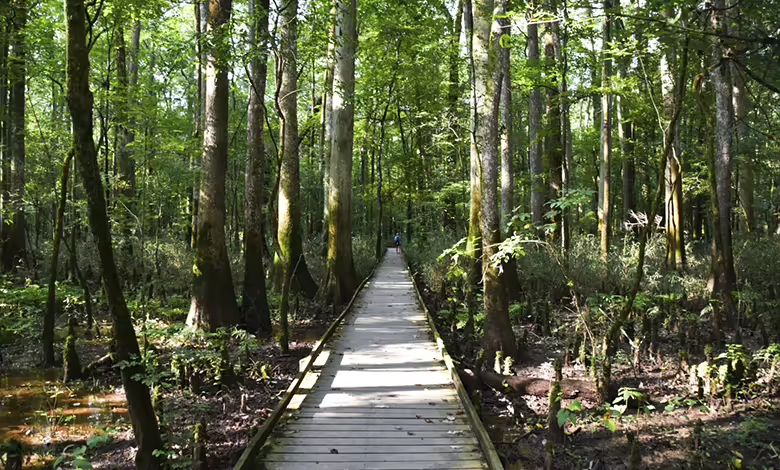
Of the 63 National Parks in the U.S., only 16 require no entrance fee – and Congaree in central South Carolina is one of them. That’s right, the Palmetto State boasts a National Park, and it’s a gem.
Established in 2003, Congaree saw just 250,000 visitors in 2023, according to the National Park Service (by contrast, 4.5 million tourists visited Yellowstone the same year). When we arrived at 8 a.m. on a mid-summer morning, we practically had the park to ourselves during our two-hour visit.
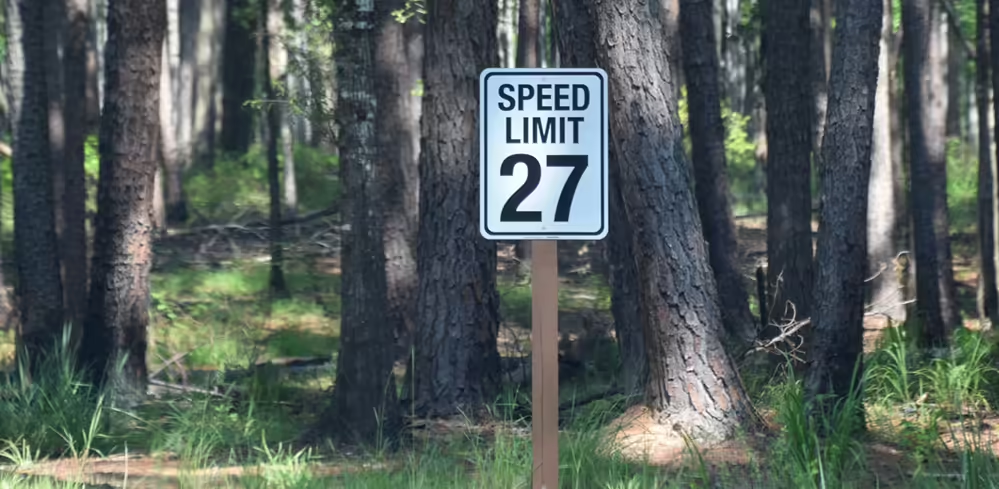
Congaree is fascinating on many levels, one being evident and amusing on arrival – the odd 27 mph speed limit signs posted along the park’s road. Park Ranger Gabrielle Alban told me they’re designed to catch visitors’ attention. “Drivers are used to seeing 15 and 25 mph signs and may overlook them more easily,” she said. “The 27 mph and fox squirrel signs are meant to remind drivers to slow down and watch for wildlife.”
Fox squirrels, with their charming furry brown coloring, may dart unexpectedly across the road like all their tiny, energetic, bushy-tailed cousins. However, not all wildlife in Congaree is so endearing. Destructive wild hogs have invaded the park, rooting through the soil for food and destroying vegetation, prompting occasional controlled hunts at night.
“It’s estimated between 3,000 to 9,000 hogs are in the park,” the manager of the park store, Patrick, told me. “Some nights, we don’t get any (on the hunt) others maybe a couple of dozen, but it’s just a drop in the bucket.”
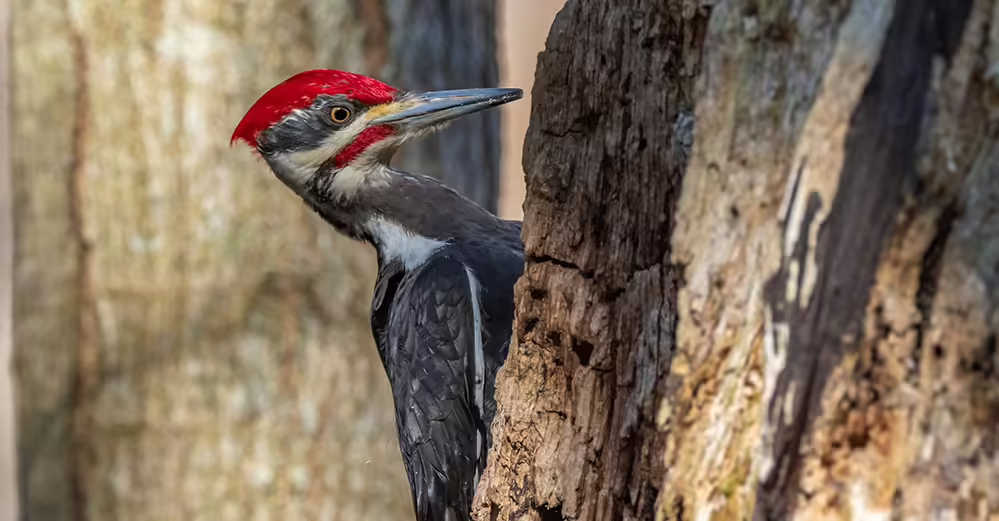
The start of your visit
Begin by collecting a map from the visitor center, then head to the 2.5-mile boardwalk, an easy, level path that winds through the park. Along the way, you’ll likely spot various birds and possibly some creepy large spiders dangling from webs spanning the trees. The park is also home to a few alligators, so you might be lucky to see one from the boardwalk swimming in Weston Lake. The map is essential as it highlights key points of interest along the boardwalk loop, including facts about Congaree’s remarkable trees.
The park is renowned for preserving the “largest intact stretch of old-growth bottomland hardwood forest in the southeastern United States,” as highlighted on the park’s website. Towering loblolly pines, sweetgum, and cherry bark oaks can soar over 150 feet tall. Cypress trees, with their characteristic swollen trunks, are also widely distributed throughout the park. Their unique ‘knees’ – prominent small structures emerging from their root systems – have intrigued scientists for ages.
Though it may appear swampy, Congaree is technically not a swampland since, after heavy rain, the water drains, leaving pools of various sizes. However, floods can cover portions of the bottomland several times a year, including boardwalk areas, so check local conditions before visiting.
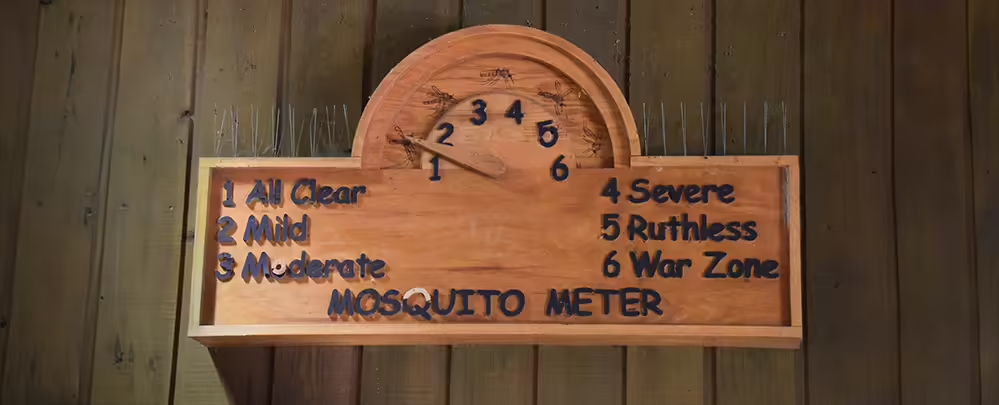
The moisture level can also affect the mosquito population, which was mercifully low during our visit and ranked a “1” on the park’s quaint Mosquito Meter posted outside the visitor center. It rates mosquito activity to a terrifying “6”—designated as a ‘War Zone’ level!
Visitors hoping to avoid being targeted by mosquitoes will naturally want to apply bug spray, but the park advises doing this before entering the park since the chemicals can kill a beloved and inoffensive park insect: fireflies.
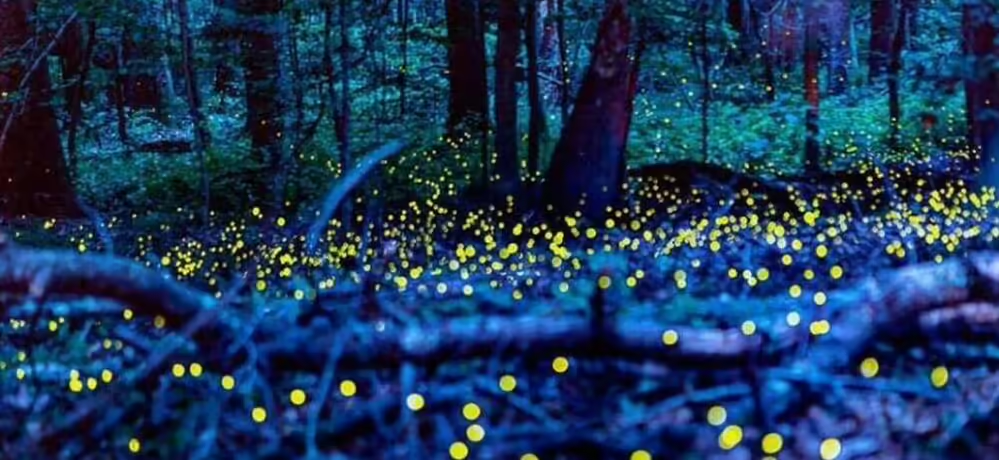
Fireflies can be seen in the park year-round, but the Synchronous Fireflies put on a spectacular light show for two weeks between May and June.
During this brief window, the insects flash in perfect unison—a breathtaking spectacle that draws not only potential mates but curious humans eager to witness these glowing airborne wonders of nature. Due to its popularity, however, access to this extraordinary event is limited and only available through a lottery. 145 passes per night will be issued next year. So, apply online early at the official park website to get a chance to enjoy this unique experience at Congaree in 2025 and beyond.





